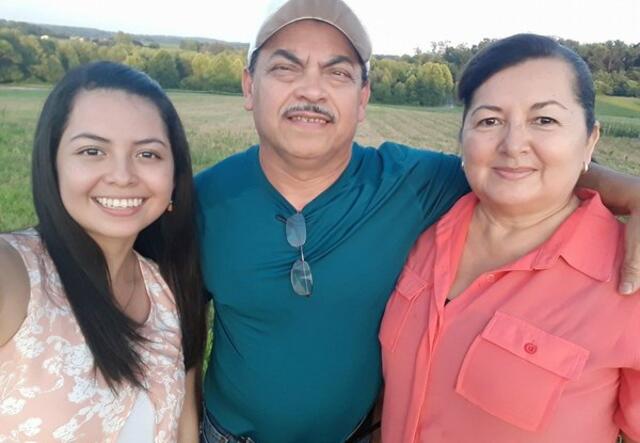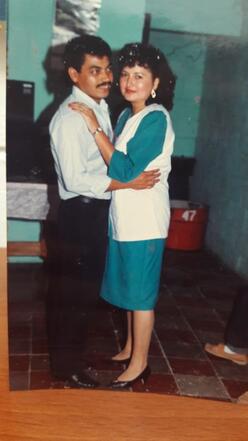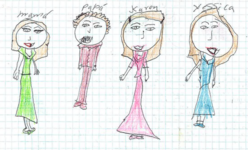
Reunited after 17 Years
By Alexandra Weidt
“Good afternoon, my name is Luis Reyes. I am the father of Karen Reyes and the husband of Ana Deisy Diaz.” This is how Luis Reyes introduces himself every time he calls the IRC in Baltimore. Luis came to the U.S. eighteen years ago from El Salvador and, after seventeen years, his wife and daughter were finally able to join him. In May 2018, Luis hugged and kissed his wife and daughter for the first time in almost two decades, making all the paperwork and waiting worth the wait.
Luis met his wife Ana forty years ago through mutual friends. They quickly fell in love and started a family. Their happy family was soon divided when the effects of the civil war and devastating earthquakes crippled the economy in El Salvador, leading Luis to being laid off from his job and unable to find work. No longer able to provide for his family, he decided to make the long and dangerous journey to the U.S in search of work. He arrived in late 2000 and due to the growing humanitarian crisis back home, was able to apply for work authorization through a program called Temporary Protected Status (TPS). It wasn’t a permanent solution, but it allowed people like Luis to live and work in the U.S. lawfully.

As crime increased in El Salvador, Luis and Ana became increasingly worried for the safety of their youngest daughter, Karen. Gang members often forced young women into relationships on the threat of death and soon after Karen entered university, four of her female classmates went missing. Karen stopped taking the bus and avoided public spaces. At night, Ana and Karen turned off all the lights in their house and Karen studied in a back room with a small lamp.

In 2016, Luis heard about a new program that allowed people with TPS to request refugee status for their children through the Central American Minors (CAM) refugee program. The CAM program was started in 2014 under President Barack Obama in response to the arrival of tens of thousands of unaccompanied minors and families from Central America at the U.S.-Mexico border.
With the assistance of the IRC in Baltimore, Luis submitted an application for Ana and Karen. After multiple interviews and DNA testing, they finally arrived in the U.S. last May. Luis recalls the moment he saw Ana at the airport for the first time in eighteen years, saying it felt “like she was my girlfriend all over again.” They are relieved to be reunited in the safety and security of the U.S. “We were so desperate to leave El Salvador,” Ana explains. “Luis was our angel leading the way. We could have never imagined that we would live in such safety.” Over the last nine months, the family has been busy settling into life in their new home. Ana is attending English classes and Karen is preparing to enroll in university. In December, the family purchased a home.
In 2017, the Trump administration abruptly canceled the CAM program, and a few months later TPS for Salvadorans was also terminated. With the help of the IRC’s immigration legal services program, Ana applied for Luis to derive refugee status through her status as a refugee. This process is lengthy, but the family is relieved that Luis may be able to obtain permanent status in the U.S. Luis and Ana consider themselves lucky. “I just hope other families are given the chance to reunite safely,” say Luis. “If it wasn’t for the CAM program, Ana and Karen would not be here with me today.”